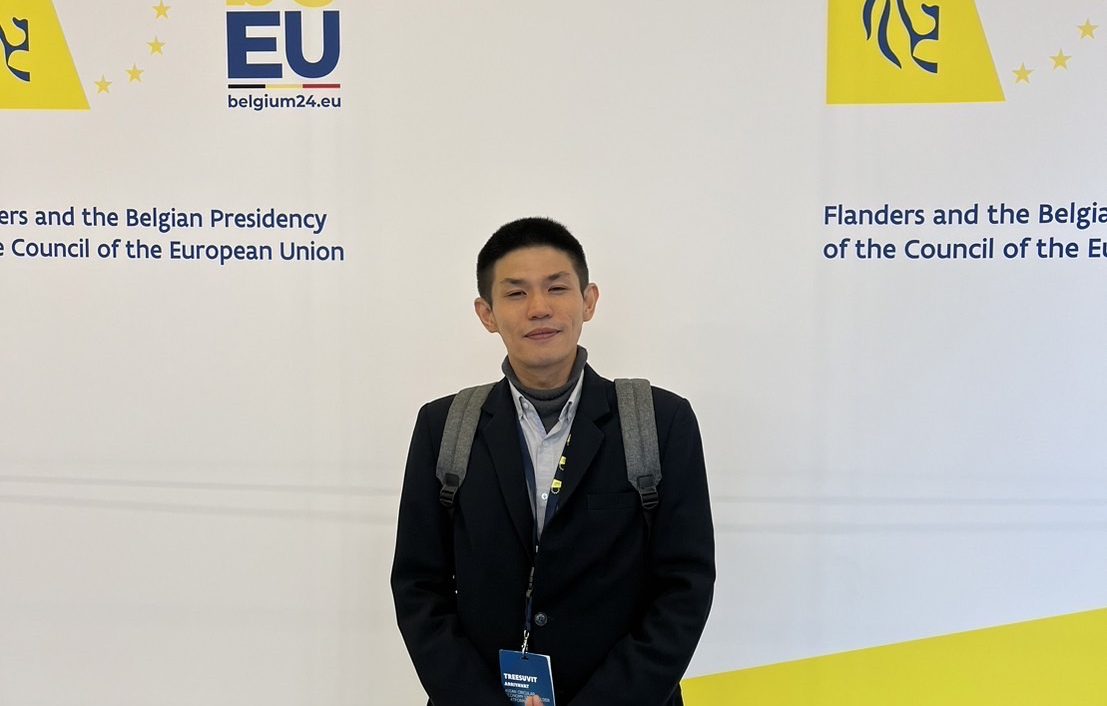From April 15-18, 2024, the ACESP Secretariat from the ASEAN Centre for Sustainable Development Studies and Dialogue (ACSDSD) actively participated in the World Circular Economy Forum (WCEF) in Brussels, Belgium. The ACESP Manager, Khun Treesuvit (David) Arriyavat, attended the European Circular Economy Stakeholder Platform workshop to learn about the platform’s successful practices and structure, which can inspire ASEAN’s regional efforts. The WCEF Grand Opening featured a keynote by Janez Potočnik, discussing sustainable pathways, while a roundtable highlighted India’s role and global commitments, stressing the importance of ASEAN’s involvement in global circular economy initiatives. The GIZ ASEAN Workshop focused on regional collaboration and best practices, with contributions from Malaysia, Thailand, and Vietnam emphasising policy coordination and stakeholder engagement. The BE Circular Economy Forum discussed comprehensive strategies for circular economy transitions relevant to ASEAN’s adoption. Lastly, the European Commission organised the SWITCH to Green Coordination Meeting aimed to improve global cooperation on green initiatives, offering ASEAN the opportunity to align with EU-supported sustainable practices, enhance policy implementation, and strengthen its global role in promoting circular economies.
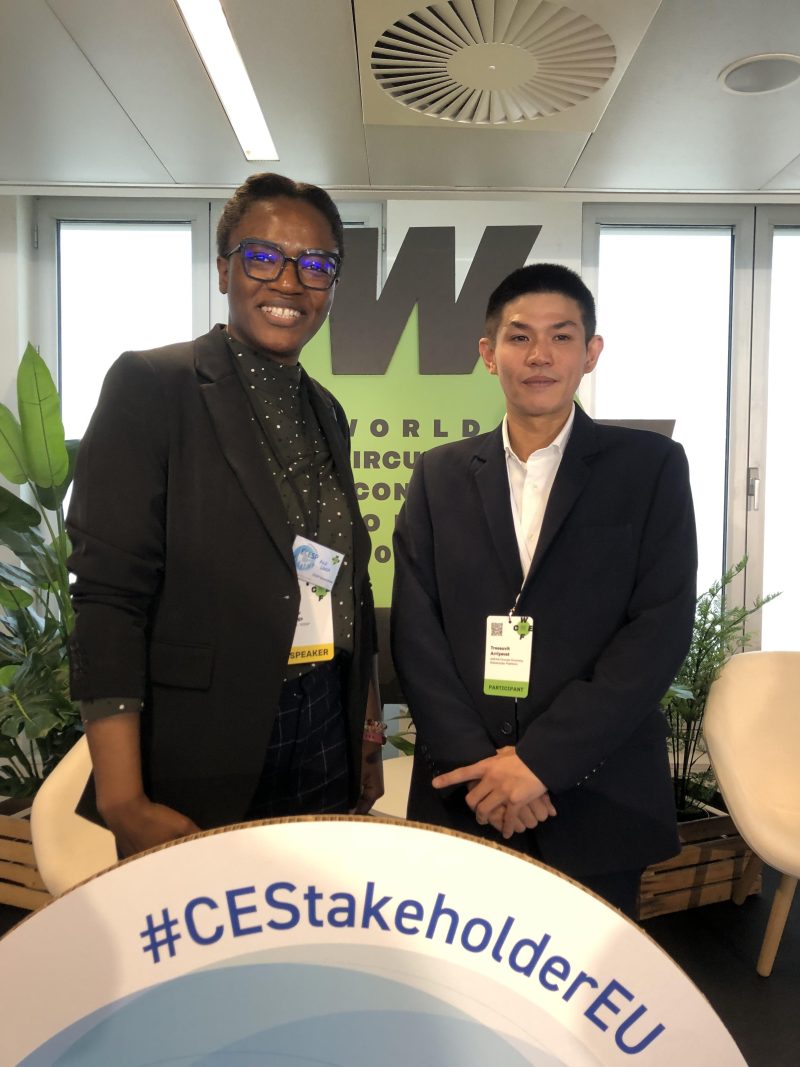 On 15 April 2024 in Brussels, Khun Treesuvit (David) Arriyavat, the ASEAN Circu lar Economy Stakeholder Platform Manager from the ASEAN Centre for Sustainable Development Studies and Dialogue (ACSDSD), Thailand, participated in the European Circular Economy Stakeholder Platform: a success story. This workshop provided an opportunity before the official opening of the WCEF to “warm up” the audience and offer a flavour of how the circular economy transition works in Europe.
On 15 April 2024 in Brussels, Khun Treesuvit (David) Arriyavat, the ASEAN Circu lar Economy Stakeholder Platform Manager from the ASEAN Centre for Sustainable Development Studies and Dialogue (ACSDSD), Thailand, participated in the European Circular Economy Stakeholder Platform: a success story. This workshop provided an opportunity before the official opening of the WCEF to “warm up” the audience and offer a flavour of how the circular economy transition works in Europe.
On this occasion, the ACESP manager, Khun Treesuvit (David) Arriyavat, had an opportunity to meet with the representative of the ECESP secretariat and dive deep into ECESP’s aims, structure and deliverables, as illustrated by EU institutions and 24 ECESP Coordination Group representatives. ACESP manager also learned about the success of ECESP in accelerating the transition to a circular economy, the challenges overcome and how the ECESP offers a wealth of best practices for policymakers, businesses, academia, and civil society, as well as translates dialogue into cooperation.
The European Circular Economy Stakeholder Platform (ECESP) success story workshop has inspired other regional platforms to learn and evolve, utilising a similar network of networks approach while recognising challenges and success factors.
In addition to the European Circular Economy Stakeholder Platform: a success story session, the ACESP Secretariat from ACSDSD participated in the following meetings and workshops between 15-18 April 2024.
15 April 2024 | The Grand Opening of WCEF 2024 and to have the opportunity to hear from Janez Potočnik, a leading figure in the world of circular economy, as he delivers his keynote speech titled “Bend the trend: Pathways to a livable planet as resource use spikes.” Having previously been inspired by his words at our International Resource Panel side event in June 2023, where we discussed “Building a Regional System of Institutions for a Circular Economy Transition in ASEAN – learning from the EU Experience,”https://lnkd.in/gbdAfzrf
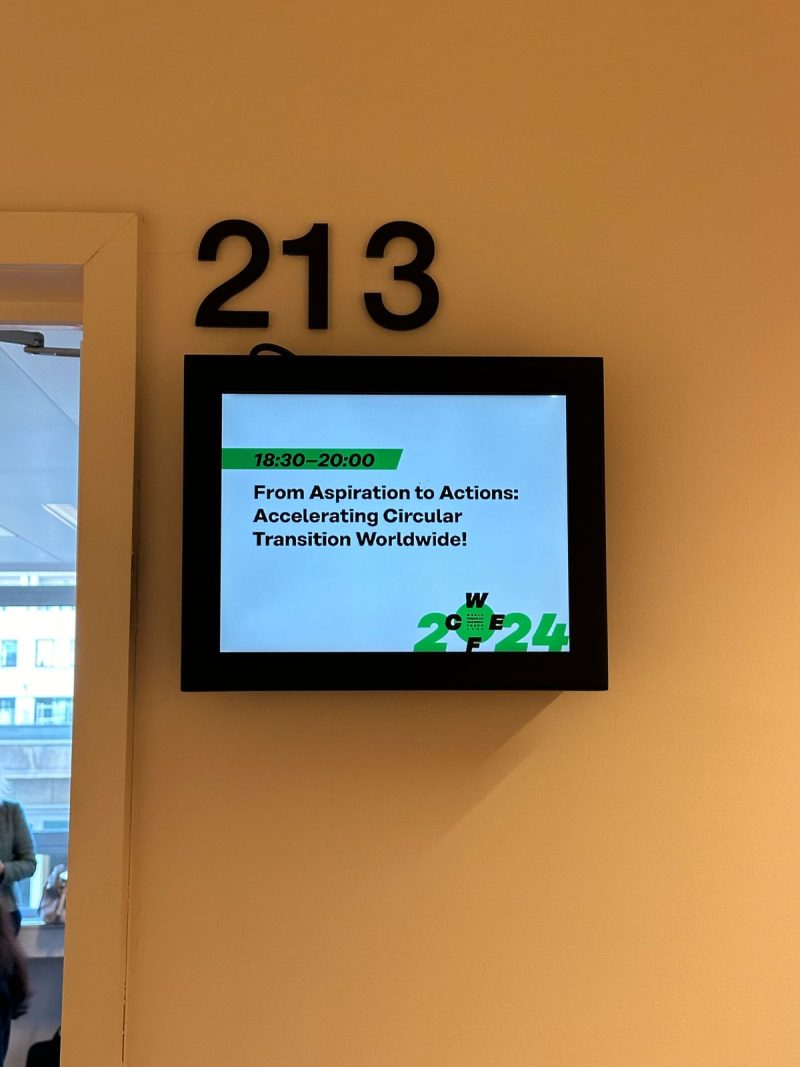
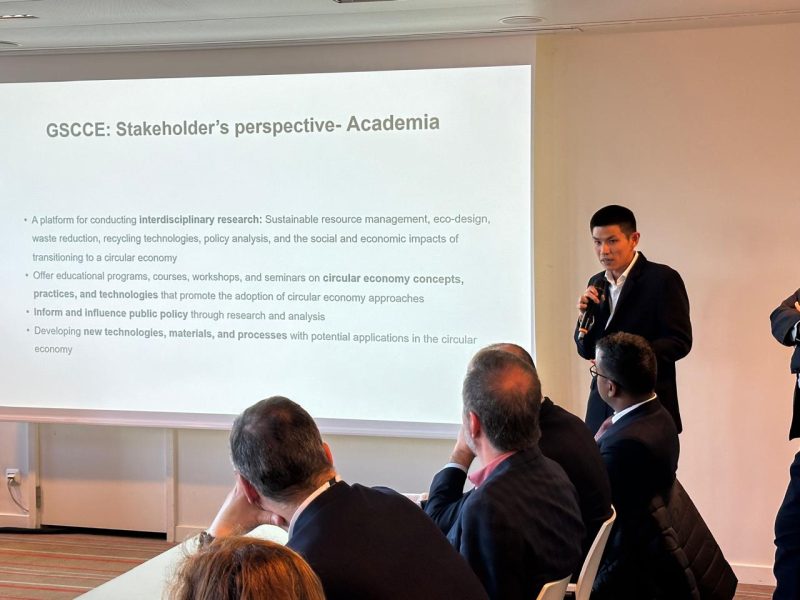
15 April 2024 | The roundtable, “From Aspiration to Actions: Accelerating Circular Transition Worldwide at The Square in Brussels, at WCEF202. Entities from the Global South, led by India’s International Council for Circular Economy (ICCE) and partnering with organisations from South Africa, Brazil, and the ASEAN Circular Economy Stakeholder Platform, convened to address global climate change challenges. The roundtable underscored India’s commitment to the circular economy, resource efficiency, and Extended Producer Responsibility (EPR), as highlighted during its G20 presidency and the New Delhi Leaders Declaration, which represents 60% of the global population. Key stakeholders from governments, multilateral bodies, and non-government entities participated, including representatives from Finland, India, Netherlands, Rwanda, the EU Commission, the World Bank, and organisations like the Ellen MacArthur Foundation and Chatham House.
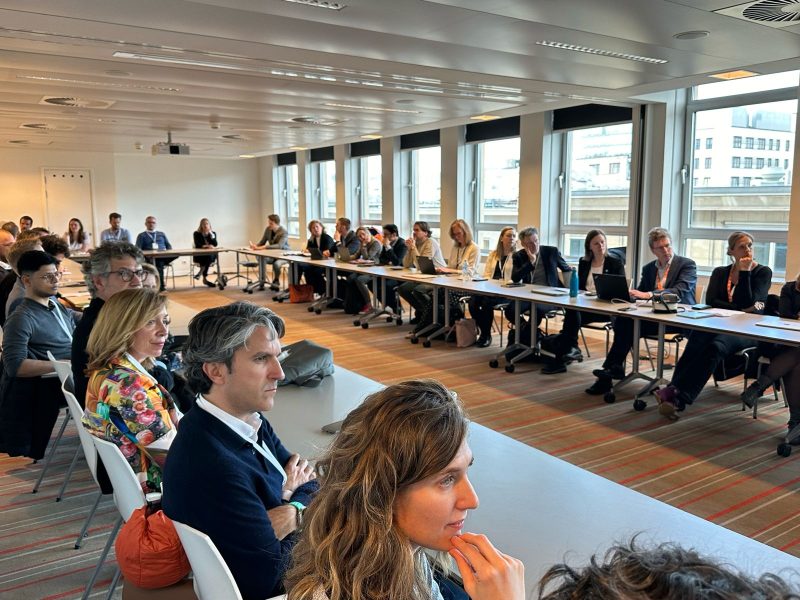 For ASEAN, this collaboration emphasises the importance of joining global efforts to promote the circular economy and sustainable development. By aligning with initiatives from other Global South countries and leveraging the support of international organisations, ASEAN can enhance its resource efficiency and EPR strategies. This approach can help address regional environmental challenges, foster innovation, and ensure sustainable growth in line with global standards. Additionally, ASEAN’s participation in such platforms can strengthen its influence and capacity to advocate for the developing world’s interests on the international stage.
For ASEAN, this collaboration emphasises the importance of joining global efforts to promote the circular economy and sustainable development. By aligning with initiatives from other Global South countries and leveraging the support of international organisations, ASEAN can enhance its resource efficiency and EPR strategies. This approach can help address regional environmental challenges, foster innovation, and ensure sustainable growth in line with global standards. Additionally, ASEAN’s participation in such platforms can strengthen its influence and capacity to advocate for the developing world’s interests on the international stage.
16 April 2024 | ACESP Secretariat from ACSDSD in the GIZ ASEAN Workshop
ASEAN Workshop on Circular Economy towards Advancing Sustainable Cooperation in the Region, 16 April 2024 – in conjunction with the World Circular Economy Forum 2024 (WCEF 2024) held in Brussels, Belgium The ASEAN Workshop on Circular Economy, held in conjunction with the World Circular Economy Forum 2024 in Brussels, was hosted by GIZ-ASEAN Projects and focused on best practices and collaboration in the region. The event, attended by 42 delegates from Indonesia, Malaysia, Thailand, and Vietnam and guests from the EU, highlighted the need for mutual platforms to share Circular Economy (CE) practices. Dr. Vong Sok from the ASEAN Secretariat emphasised the importance of innovative and holistic approaches to CE, addressing challenges such as financing and inclusivity, and stressed the need for technology transfer. Ms. Chantal Marijnessen from the EU reaffirmed the EU-ASEAN partnership and detailed the EU’s CE Action Plan, highlighting cooperation and investment to support CE transitions in ASEAN. The workshop featured contributions from ASEAN countries, including Malaysia’s CE strategy development, Thailand’s BCG Economic Strategy, and Vietnam’s focus on eco-labelling and sustainable procurement. Key points included the importance of policy coordination, stakeholder engagement, and setting regional standards. The event concluded with optimism for continued collaboration and implementation of CE solutions in ASEAN, supported by Germany and the EU.
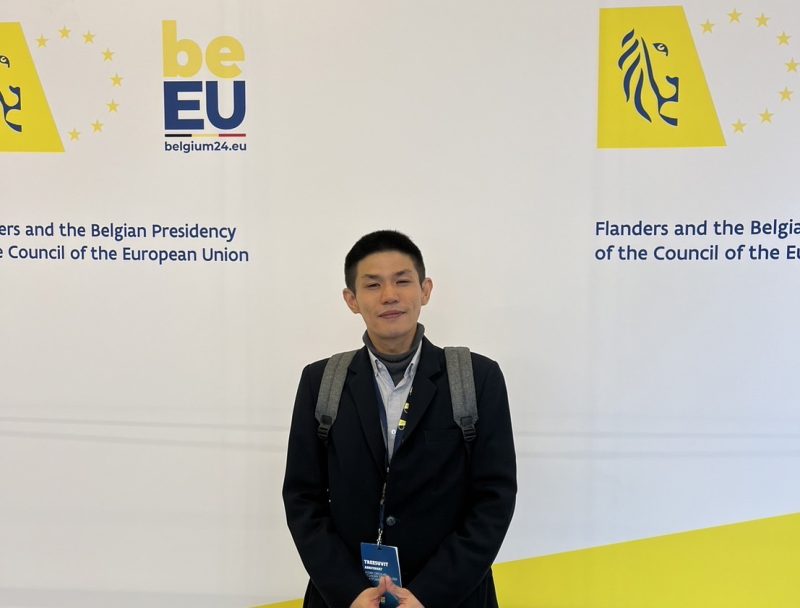 17 April 2024 | BE Circular Economy Forum: Panel discussion
17 April 2024 | BE Circular Economy Forum: Panel discussion
The presentation and panel discussion emphasise the necessity of a comprehensive approach for transitioning to a circular economy within the European Union, which has significant implications for ASEAN. Key points include the need for coherent regulatory frameworks covering the entire product lifecycle, including reuse, repair, and redesign, and the critical role of education and awareness for consumers and businesses to understand recycling and sustainable practices. Engaging civil society, as demonstrated by community involvement in recycling efforts in Eastern Germany, is crucial for the widespread adoption of circular economy principles. Additionally, the discussion underscores the importance of a broader vision that extends beyond recycling to include dematerialisation, durable products, and a shift towards service-based models. Effective policy implementation, public-private collaboration, and regulatory coherence are also highlighted as essential, alongside recognising the global nature of resource use and the necessity for robust global governance frameworks. Setting ambitious yet realistic targets, developing comprehensive monitoring frameworks, and tracking progress are vital for driving the circular economy agenda forward. Collaboration, innovation, and knowledge-sharing are critical drivers for achieving circular economy goals.
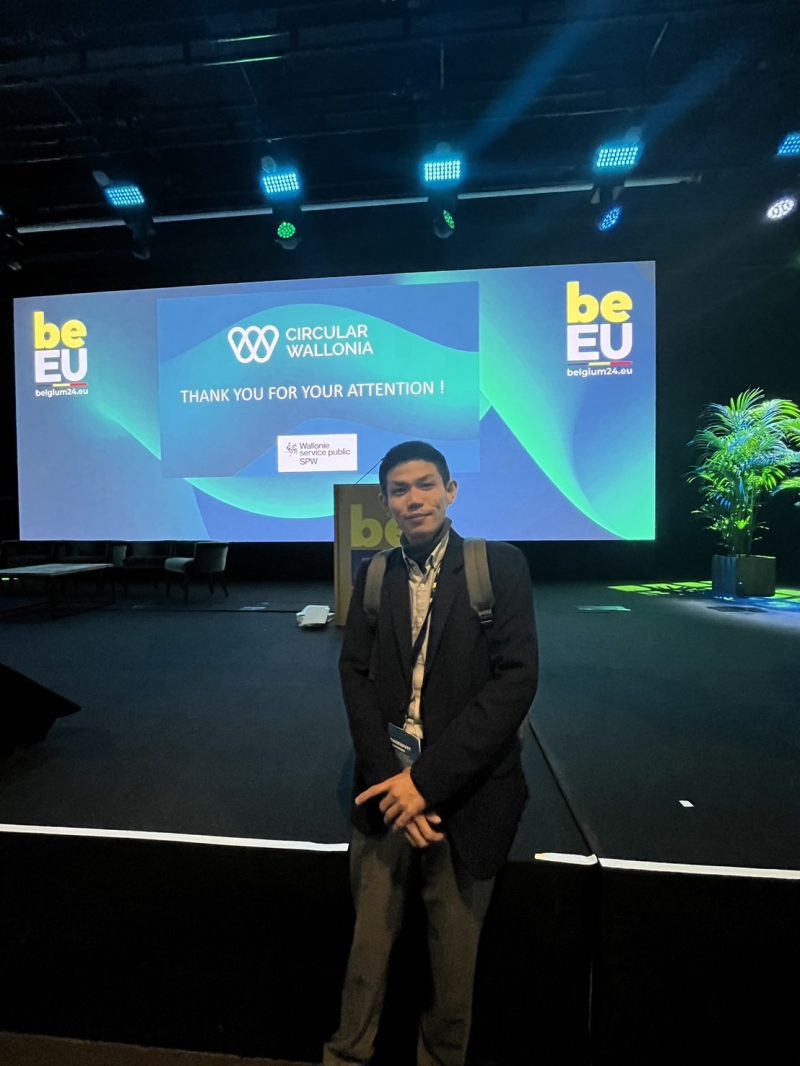 These insights underscore the urgency of adopting similar comprehensive strategies to transition towards a circular economy for ASEAN. ASEAN countries can benefit from implementing clear regulatory frameworks and fostering education and awareness about sustainability. Engaging civil society and promoting community involvement are equally crucial for the region. Additionally, ASEAN can learn from the EU’s focus on moving beyond recycling to broader strategies like dematerialisation and service-based models. Effective policy implementation and fostering collaboration between the public and private sectors will be crucial. Recognising the interconnected nature of global resource use, ASEAN should also work towards robust governance frameworks and set ambitious targets with reliable monitoring systems. By prioritising collaboration, innovation, and knowledge-sharing, ASEAN can make significant strides in achieving a circular economy, enhancing sustainability, and addressing global resource challenges.
These insights underscore the urgency of adopting similar comprehensive strategies to transition towards a circular economy for ASEAN. ASEAN countries can benefit from implementing clear regulatory frameworks and fostering education and awareness about sustainability. Engaging civil society and promoting community involvement are equally crucial for the region. Additionally, ASEAN can learn from the EU’s focus on moving beyond recycling to broader strategies like dematerialisation and service-based models. Effective policy implementation and fostering collaboration between the public and private sectors will be crucial. Recognising the interconnected nature of global resource use, ASEAN should also work towards robust governance frameworks and set ambitious targets with reliable monitoring systems. By prioritising collaboration, innovation, and knowledge-sharing, ASEAN can make significant strides in achieving a circular economy, enhancing sustainability, and addressing global resource challenges.
18 April 2024 | The 2024 SWITCH to Green Coordination Meeting, organised by the European Commission’s Directorate-General for International Partnerships, aims to create opportunities for the EU to support green and circular economy initiatives in all areas. The meeting seeks to improve connections and coordination and to strengthen global cooperation. In 2024, the focus will shift to green coordination meetings to enhance understanding of the new landscape of EU-supported initiatives at national, regional, and global levels. It aims to foster engagement between EU-supported programs and showcase examples of multi-level coordination.
Implications for ASEAN: This shift to green coordination meetings allows ASEAN to align with EU-supported green and circular economy initiatives. By participating, ASEAN countries can enhance their understanding of sustainable practices and improve their coordination and implementation of green policies. This engagement can lead to stronger partnerships, access to EU resources and expertise, and the ability to showcase ASEAN’s green initiatives globally, ultimately supporting sustainable development in the region.


